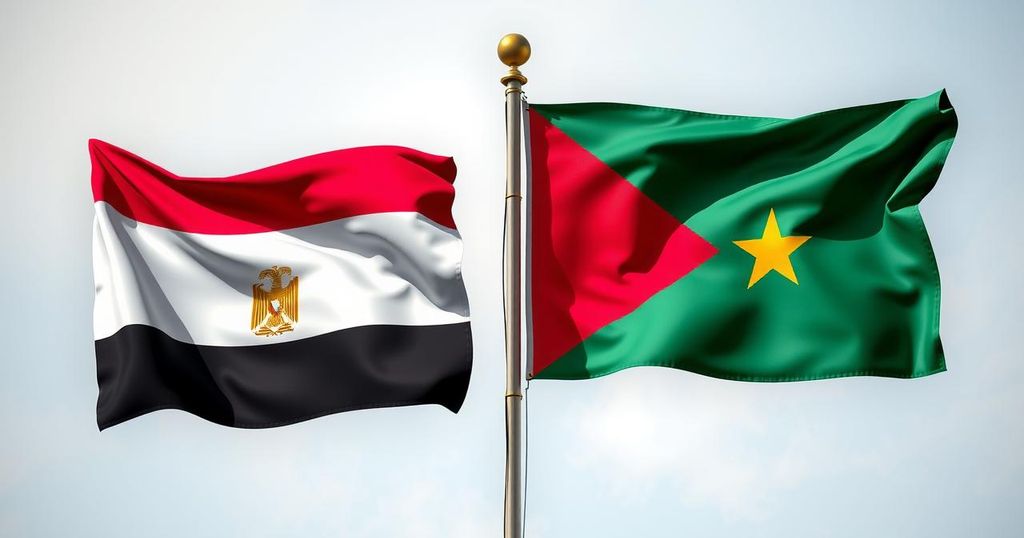Egypt has strengthened its alliance with Eritrea and Somalia in response to perceived threats from Ethiopia. Leaders from the three nations convened to enhance military cooperation and pledged support for Somalia’s counterterrorism efforts. This collaboration is seen as a strategic counter to Ethiopia’s influence and is influenced by ongoing disputes over resources like the Nile River.
In recent developments, Egypt has fortified its strategic relationships with Eritrea and Somalia to respond to growing threats perceived from Ethiopia regarding regional interests. In October 2024, the leaders of these three nations convened in Asmara for a summit focused on enhancing military cooperation and ensuring regional stability. The leaders pledged to support Somalia’s counterterrorism operations, with Egypt announcing the deployment of troops as part of the African Union (AU) mission, a strategic move that directly counters Ethiopia’s expanding influence in the Horn of Africa.
The alliance arises from Egypt’s ongoing disputes with Ethiopia over the Grand Ethiopian Renaissance Dam (GERD), which Cairo considers a significant threat to its water security. The situation has been exacerbated by Ethiopia’s memorandum of understanding with Somaliland, which has caused Somalia to shift closer to Egypt and Eritrea. Analysts view this trilateral summit as a robust strategy aimed at maintaining Egypt’s predominance in the region amidst rising tensions over Nile water rights and access to the Red Sea.
Ethiopia’s efforts to reclaim maritime access through its agreement with Somaliland have not only alarmed Somalia regarding territorial integrity but have also compelled Egypt and Eritrea to enhance military collaboration with Mogadishu. Egypt’s tactics encompass diplomatic outreach combined with military support, including arms shipments to Somalia and the formation of a joint foreign ministers’ committee to oversee strategic cooperation across various domains.
As tensions continue to mount, this alliance is poised to reshape the regional balance of power, leading to potential escalations in military and diplomatic confrontations. The forthcoming months will be critical in evaluating how this strategic coalition may impact the ongoing disputes concerning the Nile and Red Sea access.
The geopolitical landscape in the Horn of Africa has increasingly been marked by strategic alliances and rivalries, particularly between Ethiopia, Egypt, and their respective allies. At the heart of these tensions lies the Grand Ethiopian Renaissance Dam, which Ethiopia sees as crucial for its development, while Egypt perceives it as a threat to its historically mandated water rights from the Nile. The recent agreements and military cooperation among Egypt, Eritrea, and Somalia reflect a concerted effort to counteract Ethiopian expansion and reassert control over regional resources and security.
The recent summit among the leaders of Egypt, Eritrea, and Somalia signifies a concerted effort to counteract perceived threats from Ethiopia, particularly in the context of water security and territorial integrity. The alliance, characterized as a strategic coalition against Ethiopia, has implications for the balance of power in the Horn of Africa and may lead to increasing military tensions. The next few months will be pivotal in determining the effectiveness of this partnership and its impact on regional stability.
Original Source: www.garoweonline.com






